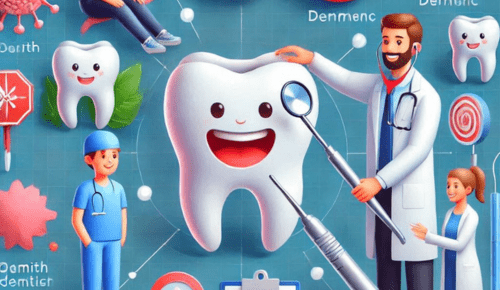
The first line of defense against chronic diseases, general dentists are assuming an unexpected new role. Although dental health has always been a top priority, many dentists today are increasingly important in spotting early symptoms of diabetes, heart disease, and even sleep problems. For what purpose? Because the mouth is often a window to general health. Little changes in teeth, gums, and oral tissues might indicate more serious disorders. Thus, dentists have a special chance to find them before they become majors.
Phoenix dentist are closing the gap between oral and total health by including health tests and preventative care in regular appointments. This change helps patients and improves cooperation between the dental and medical domains. Given the surge in chronic diseases, your next dental visit might be more than just a cleaning; it could be a lifesaver checkup. Let’s investigate how doctors are changing our approach to treatment, including dental work.
How dentists help in detecting chronic diseases
General dentists assist in early diagnosis of chronic conditions by:
- Gum Disease as an Indicator: Although a major oral health issue, gum disease—also known as periodontal disease—can be a warning indicator of other chronic conditions. Gum disease sufferers run a higher chance of acquiring diabetes, heart disease, and respiratory issues, according to studies. Early identification of gum disease symptoms—such as bleeding gums, swelling, or receding gums—by dentists will help to prevent more major systemic problems perhaps.
- Oral Cancer Screening: During regular dental checkups, dentists look for odd growths or lesions in the mouth that might be signs of oral cancer or other cancer that could travel to the mouth. Successful treatment and survival rates depend on the early detection of malignancies found at later stages since therapy becomes more difficult.
- Signs of Diabetes: Dry mouth, gum disease, and tooth decay can all result from high blood sugar levels connected with diabetes. Often the first to observe these symptoms, dentists can refer patients to their primary care physician for a diabetes diagnosis. Preventing complications—including heart disease, kidney damage, and nerve damage—all of which can be addressed early with a referral to the appropriate healthcare provider—is mostly dependent on controlling blood sugar levels.
- Signs of Osteoporosis: Dentists might see bone loss in the jaw during normal tests, indicating a condition that weakens bones. Bone density may drop under dentists’ observation, which would point to osteoporosis. Early identification enables quick intervention and therapy to prevent fractures and other consequences related to this disorder.
- High Blood Pressure: Another disorder general dentists can find during an appointment is raised blood pressure. Dentists may otherwise overlook symptoms like atypical gum responses or too much bleeding that could be connected to high blood pressure. Trained to spot these symptoms, dentists can assist patients in obtaining the required medical treatment to control hypertension before it causes more major medical problems.
How to Stay Proactive in Protecting Your Oral Health
You don’t have to wait for your dentist to inform you a problem exists. Every day, there are plenty of things you can do to keep your mouth healthy and prevent major dental problems. An aggressive approach can change things.
- Brush and floss daily: Although daily brushing and flossing appear simple, they are the basis of dental health. To clear plaque, floss once daily and brush twice daily.
- Eat a healthy diet: Reducing sugary foods and beverages helps prevent gum disease and cavities. Foods high in vitamins and minerals help build robust teeth and gums.
- Don’t skip dental appointments: Keeping up with your dental visits is vital, even if your teeth feel good. Dentists can identify items that are invisible at home.
Conclusion
Your dentist will provide tailored recommendations to assist you in keeping good practices during your appointments. Your dentist is very important in helping you avoid future issues, whether selecting the correct toothbrush or recommending preventative treatments like fluoride applications.














